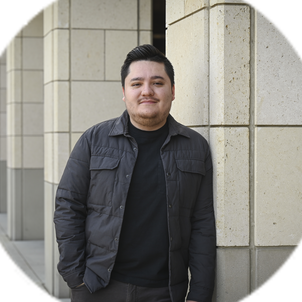I work with faculty leadership on program requirements and academic policy, and I oversee the student affairs budget. But really, my job is mostly about becoming deeply involved in student life. I make sure our students have access to information and resources about Stanford and the local community, I help with housing, academic, or personal crises that arise, and I’m heavily involved in mediating situations where there is an advisory breakdown, so that students can have a successful outcome.
My career didn’t start in academia. For years I worked in medical office administration, eventually going out on my own to do consulting for private practices and small medical groups. By 2006, my eldest daughter was in seventh grade, and I was beginning to think about college expenses and a career change. I decided to send my resume out to Stanford because it was a big university with lots of opportunity and the ability to move around and learn. I was hired as a program administrator in Mechanical Engineering by Kristin Burns, who is the most stellar supervisor and gave me lots of opportunities to grow and thrive. I later worked for eight years with the Stanford Center for Professional Development, which is also in the School of Engineering. I took my current position because I wanted to get back to working with students and faculty and having a bigger impact.
The greatest challenge I face is building trust and rapport with our students quickly. We put a lot of effort into bringing students into our program, and we want them to know that the red carpet will stay out not just as they arrive, but permanently, and that there are people in their corner who care about them and will help them get the most out of their Stanford career. I work to help them feel integrated and supported here, and I help them with basic things – how to find the bank or groceries, and how to access transportation if they don’t have a car. I put on my mom hat and I learn about their lives and their families; I check in with them to find out if their mother is recovering from her illness, or how they’re adjusting as they move from a semester to quarter system. I want them to understand that I’m not just ticking off a box and meeting some quota. They see that I remember these things, and that I care about them.
It’s easy to love what I do here. These students are accomplished and impressive, but most importantly, they’re unjaded. They believe they’ll change the world, and so many of them will. And I get to go on this journey with them for whatever time we have together.
Related spotlights

Adrienne Propp

Lara Weed

